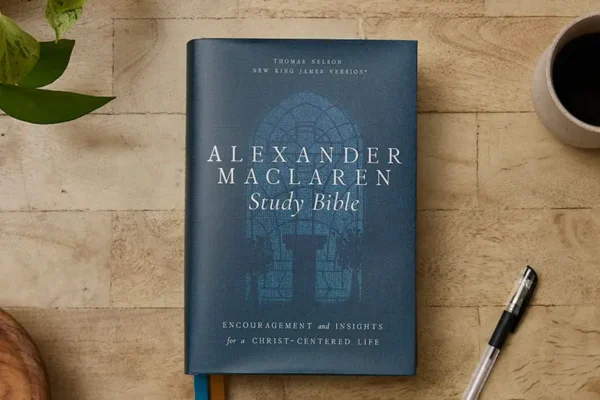How many times has this happened to you? You encounter longtime friends, read on social media, or attend a family event only to experience the rifts in relationships caused by political differences.
The relationship between faith and politics has never been more challenging.
In our increasingly polarized world, people are being caught in a tug-of-war between their beliefs and convictions and political loyalties, and it’s destroying relationships. I have even had close friends tell me how it’s ripping families apart in some cases.
Table of Contents
This growing divide between faith and political loyalty is creating a spiritual crisis. When political affiliations begin shaping our worldview more than Scripture, and when political figures command more of our passion and focus than Jesus does, we’re on dangerous ground.
More than that, when we insist on being politically right over sharing the Good News of Jesus with lost souls, we are actually walking in sin. We’re not called to win political arguments, we’re commanded to make disciples.

Balancing Faith and Politics: Who Reigns Supreme?
Let me be clear: political engagement isn’t wrong. As believers, we’re called to be salt and light throughout culture and society, and that includes politics. The issue isn’t political participation, it’s political idolatry. When our political identity overshadows our identity in Christ, we’ve lost sight of a fundamental truth: Jesus is King, and no political party or personality can claim that throne.
In this post, we’ll explore what Scripture teaches about our allegiance, see how Jesus navigated political pressures, and discover practical ways to engage in politics while keeping Christ at the center. My hope is that this message would be helpful for every believer trying to follow Jesus faithfully in our politically charged world.
And as you will see, no political candidate or party can save America – our hope must rest in something far greater.
What the Bible Says About Politics: Foundational Truths
The Bible’s teaching about faith and politics begins with a fundamental truth: we cannot serve two masters. It wasn’t a suggestion when Jesus said,
No one can serve two masters. Either you will hate the one and love the other, or you will be devoted to the one and despise the other.”
Matthew 6:24
While Jesus was speaking about money in this context, the teaching applies to anything that competes for our ultimate allegiance, especially anything that could be elevated above God.
Think about that word “allegiance” for a moment. In today’s world, we pledge allegiance to flags, swear loyalty to sports teams, and devote ourselves to ideological social causes.
But the Bible paints a radically different picture of where our true citizenship lies Scripture provides clear guidance on how Christianity and politics should interact. Paul reminds us in Philippians,
“But our citizenship is in heaven. And we eagerly await a Savior from there, the Lord Jesus Christ.”
Philippians 3:20
Paul’s revolutionary statement strikes to the core of our primary identity in and loyalty to Christ.
Let me share a personal experience that solidified this truth for me. When I lived in Eastern Europe, I met believers who had lived through the transition from communism. A common theme was that under communism, Christians knew their allegiance to Christ was above the state – and that cost many believers their freedom and for some, their life. But with freedom came opportunities previously only imagined, and with that, more struggle with divided loyalties.
The insights from my Eastern European friends taught me an essential life lesson: political freedom is a blessing that can become a spiritual roadblock when it divides our allegiance. This realization gives us a reason to pause on Peters words,
Live as people who are free, not using your freedom as a cover-up for evil, but living as servants of God.
1 Peter 2:16 (ESV)
So how does this look in reality? Imagine this: Carol is a dedicated member of her church who works in her state government. She regularly faces situations where her party’s position conflicts with her faith convictions. Rather than immediately aligning with her party, she stops to ask, “What would honor Christ in this situation?” Sometimes it means standing with her party, sometimes against it – but her allegiance to Jesus always comes first.
This Biblical foundation of allegiance requires effort. First, you must recognize that your identity in Christ is what defines your thoughts and your actions. This means that political engagement should flow from your faith rather than competing with it. And never forget… we answer to a higher authority than any earthly system.

The early Christians are powerful examples of this principle in action. They respected government authority (Romans 13:1-7), while firmly declaring, “We must obey God rather than human beings!” (Acts 5:29) when those authorities demanded compromise with their faith. They weren’t anti-government; they were pro-Jesus and that frequently cost them.
This foundation of Biblical allegiance does not ask that you withdraw from political engagement, but it requires that you engage from the right position, with the right priorities, and for the right purpose.
The Politics of Jesus: His Example on Earth
If anyone had the right and power to establish an earthly political kingdom, it was Jesus. Yet His approach to politics is a masterclass in keeping the kingdom of God above earthly power systems.
The first-century was a time not so different from our own, with fierce social and political divisions, competing loyalties, and struggles for power. How did Jesus demonstrate the perfect balance of faith and politics during His earthly ministry?
To answer that, consider the political landscape of His time: Roman occupation, corrupt religious authorities, zealous revolutionaries, and a people desperate for political liberation. Sound familiar? Yet Jesus consistently demonstrated that His kingdom operated on entirely different principles than any worldly political system.
Remember the trap the Pharisees set with the question about paying taxes?
Is it right to pay the imperial tax to Caesar or not?
Matthew 22:17
This wasn’t entirely about taxes, it was a heavily loaded political question designed to force Jesus to take sides. Support the tax, and He’d lose the people’s support. Oppose it, and He’d face Roman persecution. Jesus’s response was a mic-drop moment of properly ordering our loyalties:
Give back to Caesar what is Caesar’s, and to God what is God’s.
Matthew 22:21

Jesus had astonishing tact and refused to be set up by any political faction. When people tried to make Him king by force (John 6:15), He withdrew. When Pilate questioned His kingship, Jesus replied, “My kingdom is not of this world” (John 18:36). Even His closest followers struggled with this. Peter, who had hopes of overthrowing Roman rule, resisted by force in Gethsemane. Jesus’s response? “Put your sword back in its place” (Matthew 26:52).
Instead of pursuing political power, Jesus taught kingdom values that often contradicted the political wisdom of His day and ours:
- When society said to hate enemies, He taught love (Matthew 5:44)
- When people sought violent revolution, He chose sacrificial service (Mark 10:45)
- When leaders pursued power, He modeled humility (Matthew 11:29)
- When factions divided people, He built bridges (Ephesians 2:14)
But remember this: Jesus wasn’t politically passive. He confronted corrupt systems, challenged unjust leaders, and advocated for the marganalized. And He did it all while maintaining His primary mission:
For the Son of Man came to seek and to save the lost
Luke 19:10
This brings us to a challenging question: If Jesus prioritized saving souls over securing political power, shouldn’t we do the same? When was the last time you prayed as fervently for your political opponent’s salvation as you did for your preferred candidate’s victory?
Look at how Jesus treated Zacchaeus, a corrupt tax collector who represented everything wrong with the political system. Jesus didn’t organize a protest against tax corruption. Instead, He went to Zacchaeus’s house for dinner, and a soul was saved. The political problem was addressed, not through legislation or protest, but through transformed hearts.
The implications for us are clear:
- We can engage in politics without being defined by them
- Kingdom values should shape our political engagement, not the other way around
- Winning souls matters more than winning arguments
- True change comes through transformed hearts, not by changed laws
This is not easy! It requires being informed and involved while keeping our hearts pure and our priorities straight.
When Christian Politics Becomes Idolatry

“Dear children, keep yourselves from idols” (1 John 5:21). When John wrote these words, I’m convinced he was not thinking about political parties, candidate yard signs, or campaign buttons. Yet in today’s world, political ideology has become one of the most seductive and dangerous forms of idolatry facing the church.
But what exactly is political idolatry? Simply put, it’s when we elevate political beliefs, parties, or leaders to a position that only Jesus should occupy. It’s when our political identity starts shaping our Biblical interpretation rather than the other way around. It’s when we find ourselves more passionate about political victories than spiritual ones.
Let me share a painful example. Recently, I listened to an aquantance talk about her two Christian brothers who nearly came to blows during a shouting match over a political disagreement during a family gathering.
Their political convictions had become so central to their identity that they were willing to not only hurt a familiy member, but also to violate clear Biblical commands about loving one another (1 John 4:20-21) only to defend their political views. This is a sad state our society is in, and worse than that… it’s idolatry.
When political loyalty divides the Body of Christ, we must examine whether we’ve elevated politics above our calling to unity. The prophet Isaiah’s words ring loud and true today:
Stop trusting in mere humans, who have but a breath in their nostrils. Why hold them in esteem?
Isaiah 2:22
When we place our ultimate hope in political leaders, we’re doing exactly what Isaiah warned against.
Remember Jesus’s words to the Pharisees:
These people honor me with their lips, but their hearts are far from me. They worship me in vain; their teachings are merely human rules.
Matthew 15:8-9
How often do we do the same thing, replacing God’s kingdom priorities with human political agendas?
The antidote to political idolatry isn’t political withdrawal, it’s proper perspective. As Solomon wisely observed, “Trust in the LORD with all your heart and lean not on your own understanding” (Proverbs 3:5). This applies as much to our political views as it does to business, marriage, or any other area of life.
Biblical Guidelines for Christian Political Engagement
It’s one thing to identify a list of problems, but another thing altogether to provide solutions. How do we practically maintain our Christian witness while engaging a politically charged culture?
Applying our faith and politics in a God-honoring way requires intentional effort. The answer begins with intentional, Spirit-led practices that keep Jesus at the center of all of our social engagement.

Step 1: Intentional Prayer and Discernment
Before you share that political post or engage in that heated debate, pause and pray. Paul instructs us to “pray without ceasing” (1 Thessalonians 5:17), and this certainly includes our political engagement.
Step 2: Evaluate Political Platforms with Scripture
We’re called to be like the Bereans (Acts 17:11), carefully examining everything against Scripture. One practical approach is to ask, “Does this reflect the character of Christ? Does it advance His kingdom purposes? Does it demonstrate love for both God and neighbor?”
Step 3: Community Discussions Centered on Faith
“Iron sharpens iron” (Proverbs 27:17), but only when we engage with proper motives and methods. Consider starting a small group specifically focused on discussing current events through a Biblical lens. The goal isn’t to achieve political consensus but to help each other maintain Christ-centered perspectives.
Remember Jesus’s prayer “that they may be one” (John 17:21). Our unity in Christ should be more visible than our political differences. This doesn’t mean we’ll always agree, but it does mean we prioritize our shared faith over our political disagreements.
Aligning Political Engagement with Spiritual Identity
I’ll be brief and direct: if your political activism is pushing people away from Jesus rather than drawing them to Him, something is seriously wrong. Our engagement with politics should flow from our identity in Christ, not compete with it. Think about these words from Paul:
Whatever happens, conduct yourselves in a manner worthy of the gospel of Christ.
Philippians 1:27
Notice he doesn’t say “worthy of your ideology.” The good news of Jesus Christ should shape how we engage in every area of life, including politics. Before engaging in political discussions, we must honestly assess whether our political ideology is strengthening or weakening the church’s mission.
Reaffirming Jesus as King in a Politically Charged World

As we wrap up this discussion, let’s return to where we started: Jesus is King. Not potentially king. Not partially king. Not king-when-it’s-convenient. He is King of kings and Lord of lords (Revelation 19:16), right now, regardless of who occupies earthly seats of power.
So let me challenge you: How would your political engagement change if you filtered everything through your identity in Christ?
As we navigate these politically charged times, let’s remember that our ultimate hope isn’t in any political party, social platform, or candidate. Our hope is in Jesus Christ, who reigns supreme over every realm of life.
The world desperately needs to see Christians who can engage in society without being mastered by it. People who can stand firm in their convictions while extending grace to those who disagree. Believers who remember that our ultimate citizenship is in heaven, and we serve a King whose kingdom will never end.
Let’s be those Christians.
Because politics will pass away, but Jesus’s kingdom remains forever…and no election result can change that eternal truth.




Leave a Reply